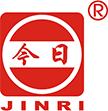How To Store Lever Arch Files?
Lever Arch Files are essential for organizing important documents, but storing them improperly can lead to damage, clutter, and frustration. Whether you're managing business records, academic papers, or personal documents, proper storage solutions can save you time, space, and stress. This guide covers the best practices for storing your lever arch files efficiently and safely.
Why Proper Lever Arch File Storage Matters
Storing your lever arch files correctly offers several key benefits:
Preserves document quality by protecting against dust, moisture, and physical damage
Saves valuable space through efficient organization systems
Improves accessibility so you can find what you need quickly
Enhances office aesthetics by reducing visual clutter
Increases productivity by creating an organized workflow environment
Best Storage Solutions for Lever Arch Files
1. Filing Cabinets
The classic solution for lever arch file storage remains filing cabinets. Choose from:
Vertical filing cabinets: Ideal for space efficiency, allowing you to store files in an upright position
Lateral filing cabinets: Provide easier access and better visibility for frequently used files
Metal vs. wood cabinets: Metal offers durability and security, while wood provides aesthetic appeal
2. Shelving Units
Adjustable shelving units offer flexible storage options:
Heavy-duty bookshelves: Can accommodate multiple rows of files
Industrial shelving: Provides maximum weight capacity for large collections
Cube storage units: Offer compartmentalized storage with decorative potential
3. Storage Boxes
For archival purposes or less frequently accessed files:
Archive boxes: Specifically designed to hold lever arch files
Plastic storage containers: Protect against moisture and pests
Bankers boxes: Economical solution for temporary or rotating storage
4. Mobile Storage Systems
For offices requiring frequent access in different areas:
Rolling file carts: Provide mobility between workspaces
File trolleys: Offer tiered storage that moves with you
Organizing Your Lever Arch Files
Categorization Systems
Implement a logical organization method:
Alphabetical: Ideal for client or project names
Numerical: Perfect for sequential document tracking
Chronological: Best for time-sensitive records
Color-coded: Visual system for quick identification
Subject-based: Grouped by topic or department
Labeling Best Practices
Clear labeling is essential for efficient retrieval:
Use consistent labeling formats across all files
Invest in a quality label maker for professional results
Place labels in visible, consistent positions on each file
Include dates, categories, and retention information where appropriate
Space Optimization Techniques
Vertical vs. Horizontal Storage
Vertical storage: Saves space and makes files easier to browse
Horizontal stacking: Suitable for low shelves or deep cabinets but can make retrieval difficult
Density Considerations
Avoid overstuffing shelves or cabinets, which can damage files and hardware
Leave adequate space for air circulation to prevent moisture buildup
Consider weight limits of shelves to prevent structural issues
Environmental Protection Measures
Climate Control
Maintain stable temperature and humidity levels to prevent paper degradation
Avoid storing files in attics, basements, or areas prone to temperature extremes
Use dehumidifiers in damp climates to prevent mold growth
Light Protection
Store files away from direct sunlight to prevent fading and paper deterioration
Use opaque storage containers or cabinets to block light exposure
Pest Prevention
Regularly inspect storage areas for signs of insects or rodents
Avoid storing files near food sources
Consider natural pest deterrents like cedar blocks in storage areas
Maintenance and Accessibility
Regular Review Schedule
Establish a routine for purging outdated documents
Implement a retention policy to manage file lifecycle
Schedule annual reviews to maintain organization system integrity
Access Considerations
Position frequently accessed files at eye level for easy retrieval
Store rarely accessed archives in less accessible areas
Create a tracking system for checked-out files
Digital Integration
Hybrid Systems
Consider scanning frequently referenced documents for digital access
Use barcode systems to track physical file locations
Implement digital indexes that correspond to physical storage systems
Special Considerations for Home Offices
Space-Saving Solutions
Use vertical space with tall, narrow shelving units
Consider under-desk filing solutions
Utilize multipurpose furniture with built-in storage
Aesthetic Integration
Choose storage solutions that complement your decor
Use decorative boxes or curtains to conceal files in living spaces
Select coordinating colors for files and storage containers
Security Measures
Confidential Documents
Implement locked storage for sensitive files
Create access logs for restricted documents
Consider fireproof cabinets for irreplaceable records
Backup Systems
Maintain duplicate copies of critical documents
Store important backups off-site or in cloud storage
Consider fire-resistant storage options for vital records
Conclusion
Proper lever arch file storage transforms document management from a chore into an efficient, organized system. By selecting appropriate storage solutions, implementing logical organization methods, and maintaining your system regularly, you can protect important documents while maximizing your workspace efficiency. Remember that the best storage system is one that you'll actually use consistently, so choose solutions that fit your specific needs, space constraints, and working style.
Whether you're managing a corporate archive or organizing household documents, these lever arch file storage strategies will help you create a functional, sustainable system that preserves your important papers and makes them accessible when you need them.
Previous: How Durable are Expanding Files?



